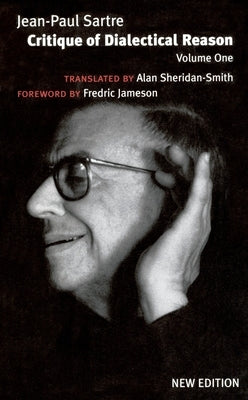Description
At the height of the Algerian war, Jean-Paul Sartre embarked on a fundamental reappraisal of his philosophical and political thought. The result was the Critique of Dialectical Reason, an intellectual masterpiece of the twentieth century, now republished with a major original introduction by Fredric Jameson. In it, Sartre set out the basic categories for the renovated theory of history that he believed was necessary for post-war Marxism. Sartre's formal aim was to establish the dialectical intelligibility of history itself, as what he called 'a totalisation without a totaliser'. But, at the same time, his substantive concern was the structure of class struggle and the fate of mass movements of popular revolt, from the French Revolution at the end of the eighteenth century to the Russian and Chinese revolutions in the twentieth: their ascent, stabilisation, petrification and decline, in a world still overwhelmingly dominated by scarcity.
Author: Jean-Paul Sartre
Publisher: Verso
Published: 11/01/2004
Pages: 835
Binding Type: Paperback
Weight: 2.35lbs
Size: 8.56h x 5.40w x 1.83d
ISBN13: 9781859844854
ISBN10: 1859844855
BISAC Categories:
- Philosophy | Movements | Existentialism
- Philosophy | Political
- Philosophy | Individual Philosophers
Author: Jean-Paul Sartre
Publisher: Verso
Published: 11/01/2004
Pages: 835
Binding Type: Paperback
Weight: 2.35lbs
Size: 8.56h x 5.40w x 1.83d
ISBN13: 9781859844854
ISBN10: 1859844855
BISAC Categories:
- Philosophy | Movements | Existentialism
- Philosophy | Political
- Philosophy | Individual Philosophers
About the Author
Jean-Paul Sartre was a prolific philosopher, novelist, public intellectual, biographer, playwright and founder of the journal Les Temps Modernes. Born in Paris in 1905 and died in 1980, Sartre was awarded the Nobel Prize for Literature in 1964--and turned it down. His books include Nausea, Intimacy, The Flies, No Exit, Sartre's War Diaries, Critique of Dialectical Reason, and the monumental treatise Being and Nothingness.

